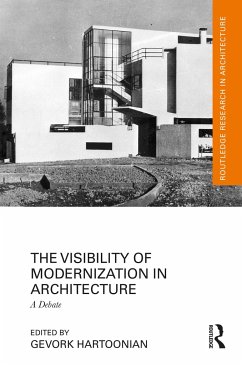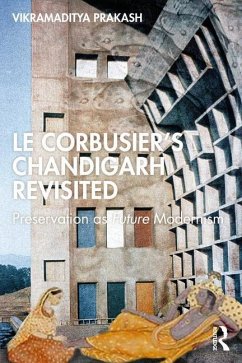
Urban Planning in the Third World
The Chandigarh Experience
Versandkostenfrei!
Versandfertig in 6-10 Tagen
36,99 €
inkl. MwSt.
Weitere Ausgaben:

PAYBACK Punkte
18 °P sammeln!
Originally published in 1982 Urban Planning in the Third World is concerned with some of the critical issues underlying urban planning in the Third World. Taking the specific case of Chandigarh, planned or rather 'designed' by Le Corbusier as the new capital of Punjab following Partition, the author describes the development of the city, showing how concepts inherent in the master plan and the policies pursued in its implementation not merely ignored, but totally excluded a major section of the population from 'legal' housing and employment. The book sets a distinct theoretical framework, exam...
Originally published in 1982 Urban Planning in the Third World is concerned with some of the critical issues underlying urban planning in the Third World. Taking the specific case of Chandigarh, planned or rather 'designed' by Le Corbusier as the new capital of Punjab following Partition, the author describes the development of the city, showing how concepts inherent in the master plan and the policies pursued in its implementation not merely ignored, but totally excluded a major section of the population from 'legal' housing and employment. The book sets a distinct theoretical framework, examining the Indian context at the time of Independence, the Western origins of the planning concepts applied in the city, and the process by which Le Corbusier finalized its master plan in a matter of days. The book also examines the social forces determining the temporary resolution of inherent conflicts in the plan and examines the growth of non-plan settlements in the city and the impact ofthe plan on the lives of the settlement residents.














